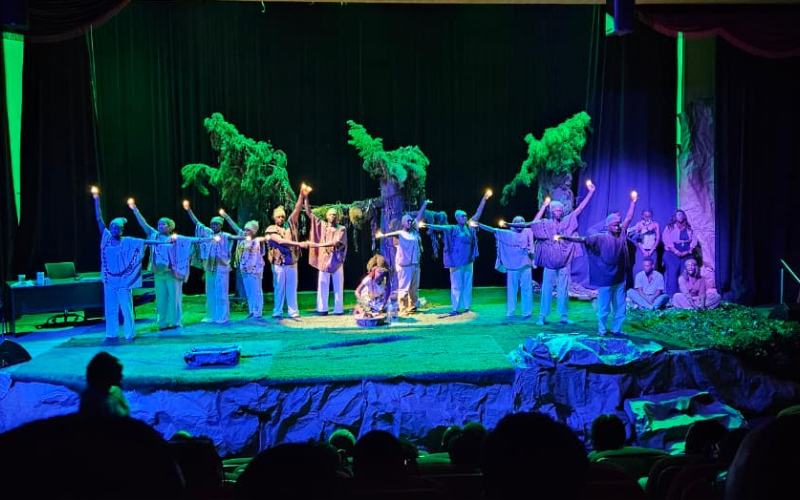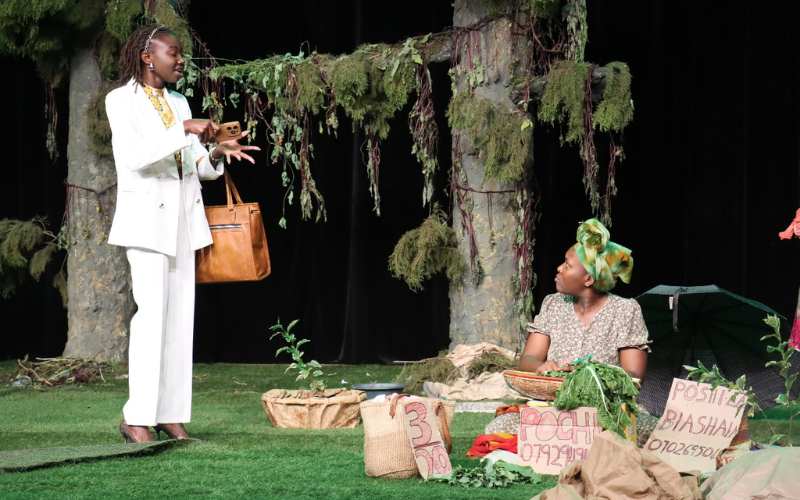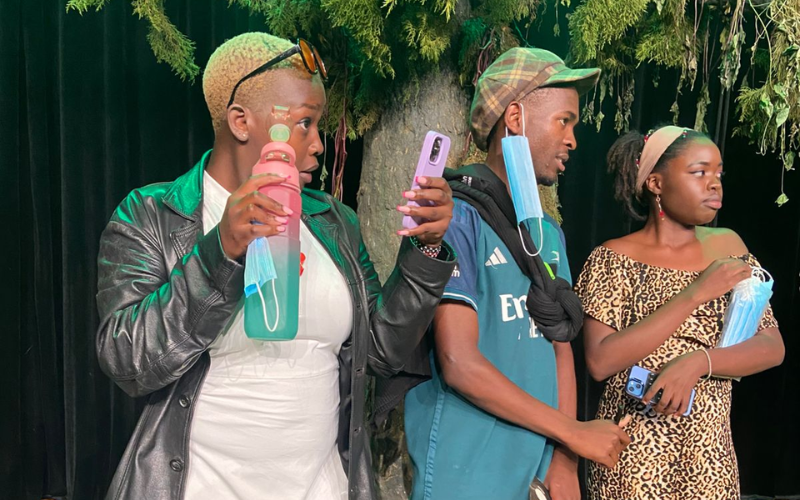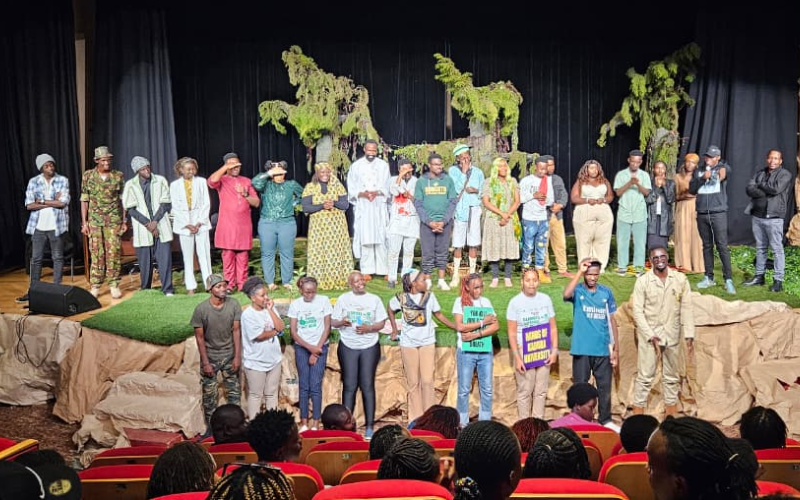At Karura University, Zuri Wangari is devastated when Prof Wangari Maathai Memorial Park is sold off to foreign investors who plan to cut down trees for a luxury hotel ironically named Roots Resort.
But Zuri (played by Melissa Kasaba) refuses to stand by and let this happen. Sparked by the enduring spirit and legacy of the late Prof Wangari Maathai, she resists greed, corruption and ecological destruction.
She channels a generation into a fearless movement armed with a digital space and science. Zuri’s defiance speaks to the urgency of COP30, the United Nations Climate Change Conference to be held in November, that summons youth to fight for climate justice.
Wangari 2.0, a play produced by Brian Misiati of Artspace 254, is a tribute play to Prof Maathai and also a call to honour her legacy of environmental protection.
The production reimagines Wangari Maathai’s legacy, with Zuri going through the same experiences as the late environmentalist.

Kasaba was intrigued by the play because she had never seen anyone do a theatrical tribute to Prof Maathai.
“I was curious to see how that would look on stage, how her story could live again. Prof. Maathai was calm yet determined in the face of hostility, and I wanted Zuri to reflect that,” she says.
Offstage, Kasaba is also an environmental activist, pushing for tree planting and recycling; therefore, Zuri’s fight felt like hers too.
In preparing for the role, she absorbed herself in Prof Maathai’s writings and watched old footage of her campaigns: the protests for Karura Forest, her confrontations with authorities, and when she received the Nobel Peace Prize.
One of the scenes that has stuck with her throughout rehearsals was where Zuri was tortured, an experience that reflected Prof Maathai’s real experience.

“I was bothered that she went through these injustices, and her perpetrators were not held accountable. Also painful is seeing that we are still fighting the same battles today,” she says.
Her portrayal of Zuri has fuelled her climate activism. Before this play, she thought that environmentalism was something a few people could do.
Now, her research on the subject has made her see its effects; therefore, everyone should be involved.
When Artspace 254 asked Ken Aswani to direct the play, he aimed to make it as entertaining as it is educational.
“The story is educational, but theatre has to be entertaining too. People hear a play is about deforestation and think it will be heavy. My job was to find the balance between teaching and amusing them,” he says. Aswani worked closely with the play’s producer, Brian Misiati, whose passion for climate advocacy inspired the entire project.

Misiati wanted to see art to educate his peers about climate change. And when he read the script, it struck him that what Prof. Maathai fought for decades ago is what is still happening today.
Rehearsals were intense, and they spanned more than two months, but they didn’t miss out on challenges. Some actors left midway for various reasons, forcing him to do some scenes all over again. “When I sit down with actors, they bring their visions and perspectives to the story. I merged their perspectives with mine to enrich the story,” says Aswani.
Casting Kasaba as Zuri was a serendipitous moment for Aswani, who likens her physical attributes to Prof Maathai.
“When she auditioned, I thought, ‘This is Prof. Maathai. If you dress her the same way, you’d be confused. But beyond her resemblance, she already understood the climate work,” he says.
Aswani says staging the violent scenes where people were sent to teach Zuri a lesson was difficult, but this was a reality that Prof Maathai went through.
“The play honours her, and it is also a clarion call for a new generation to rise and become her radical evolution. We want people to leave the auditorium and take action to care for and protect the environment,” he says.


